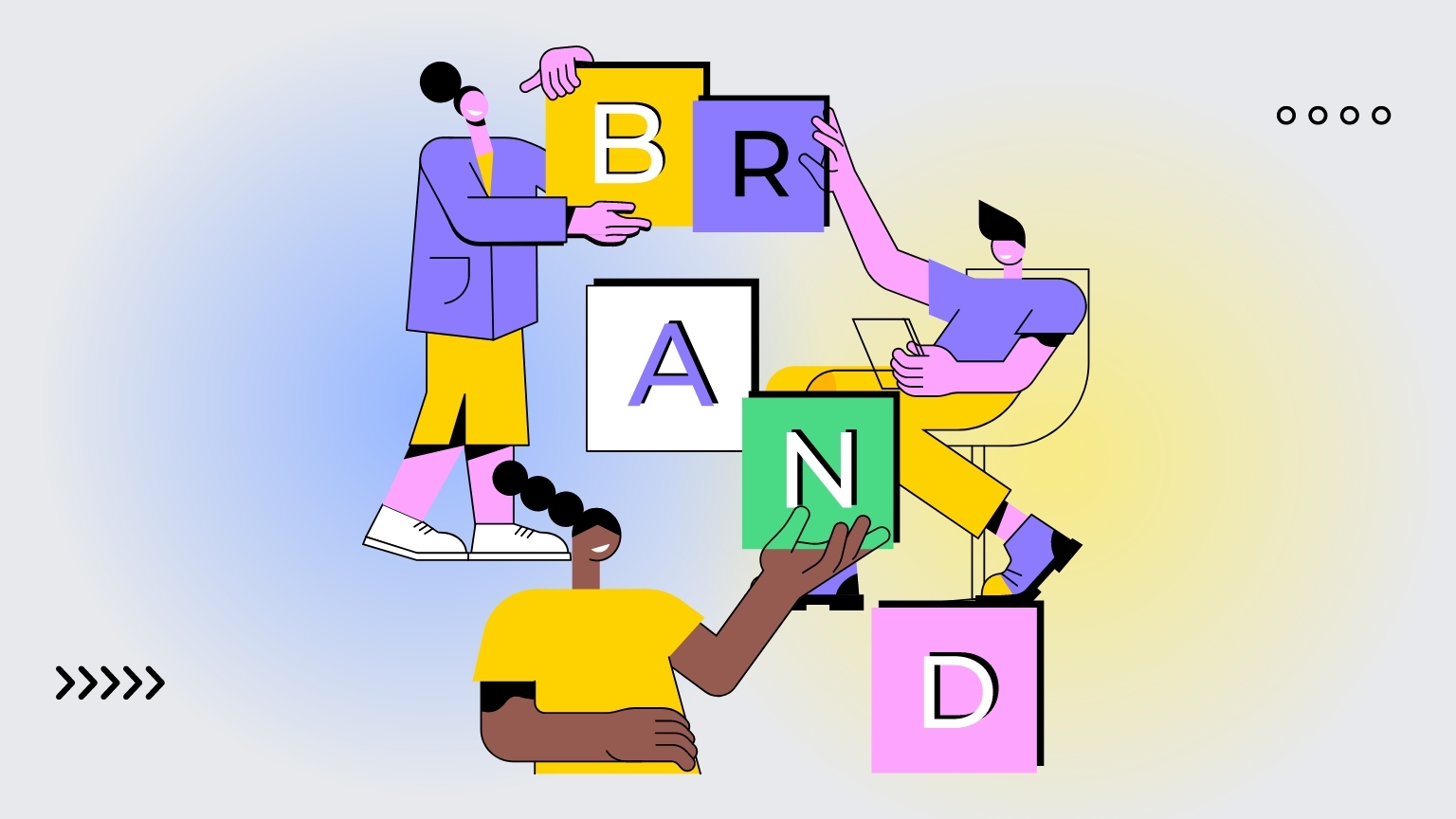
What if someone gave you a magic wand to grow your business effortlessly without hiring staff or spending money to build software? Will you immediately grab it? If yes, then have a seat as we bring you the magic wand all wrapped in white label AI chatbots. These are tools already made for you to customize and brand chatbots, and then offer them to your clients. It's a fantastic way to make more money while spending less on hiring staff and developing software.
However, choosing the right platform can be a pretty difficult decision to make. Let's help you by telling you everything you need to know about white label AI chatbots, features to look out for, and the top 7 white label AI chatbot platforms you can always choose from.
What is a White Label AI Chatbot?
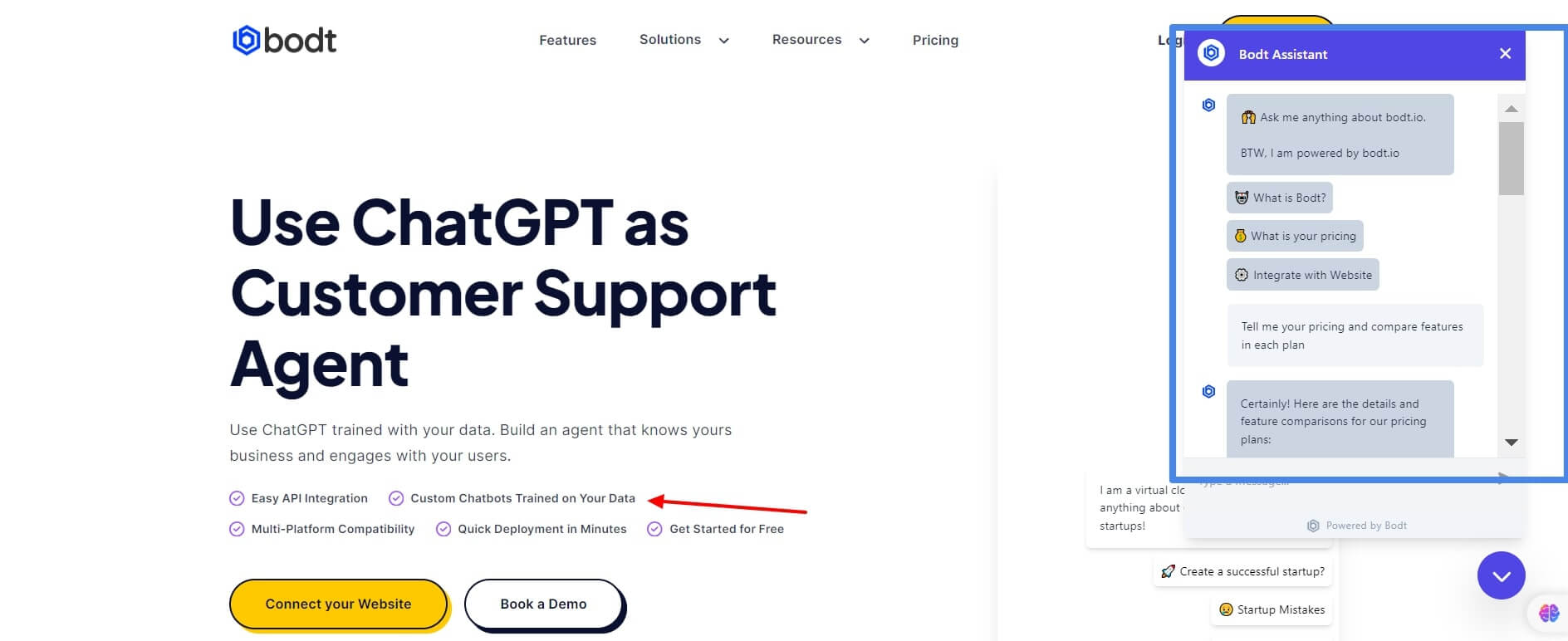
A white label AI chatbot is a ready-made chatbot created by one company but sold to another company to use under its brand name. It lets businesses offer chatbot services with their logo and style without starting from scratch. This way, they can quickly provide a tailored solution to customers, improve their services, and keep control over how customers interact with them.
Nowadays, efficient customer interaction tools are important. An AI chatbot can handle multiple interactions at once and ensure no customer is left waiting, which improves their experience. And, with the ability to operate around the clock, your business is always available to assist customers.
Key Characteristics
White label AI chatbots come with some outstanding features that make them a great choice for your business. They include:
- Customizability
What label AI Chatbots are adjustable. You can adjust the chatbot's functions and responses to match your specific business goals and industry requirements perfectly. - Branding Flexibility
Companies can brand the chatbot with their logos, colors, and messaging styles to match their brand identity. - Integration Capabilities A white label AI chatbot can easily integrate with the tools and systems you’re already using. It doesn't matter if it's your customer relationship management (CRM) software, email marketing platform, or social media channels, the chatbot can connect with them all. This makes managing customer interactions easier, gathering data, and streamlining your processes. Think of it as a new team member who gets along with everyone and fits right in.
- Scalability
As your business grows, so do your needs. White label AI chatbot is capable of handling varying levels of user interaction and scaling as per business needs.
Use Cases of a White Label AI Chatbot
White label AI chatbots are incredibly versatile and can be used in many different ways to benefit your business. They are:
- Customer Service Automation
One of the common uses of white label AI chatbots is automating customer service. It can handle FAQs, troubleshoot issues, and even guide customers through step-by-step processes. This means your customers will be happier because they will get quick responses, and your human support team can focus on more complex issues.
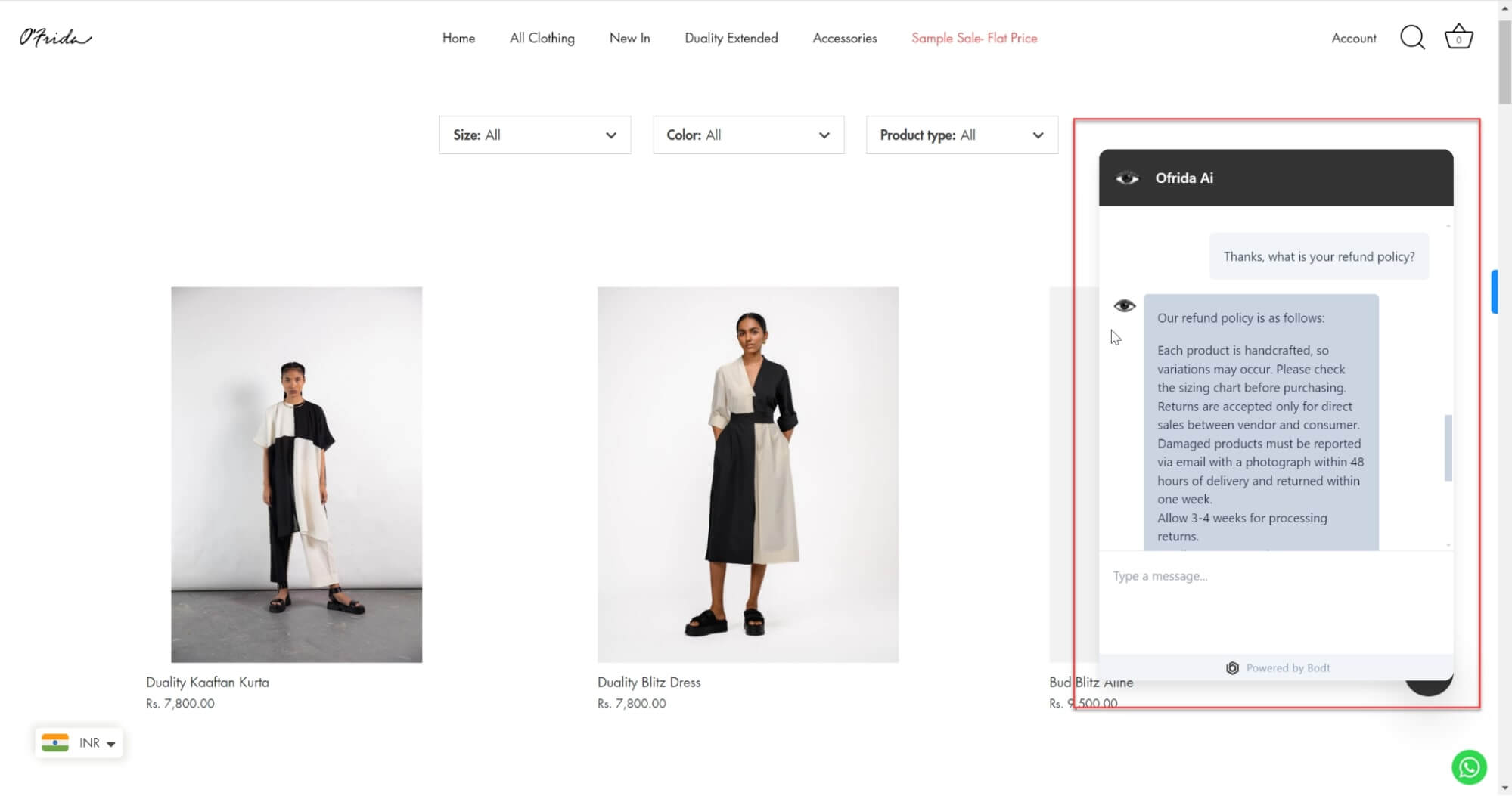
- Sales and Marketing Support
White AI chatbots can be a huge asset in boosting your sales and marketing efforts. They send personalized messages, recommend products based on customer preferences, and help with targeted campaigns. This means more leads, better customer engagement, and ultimately, more sales.
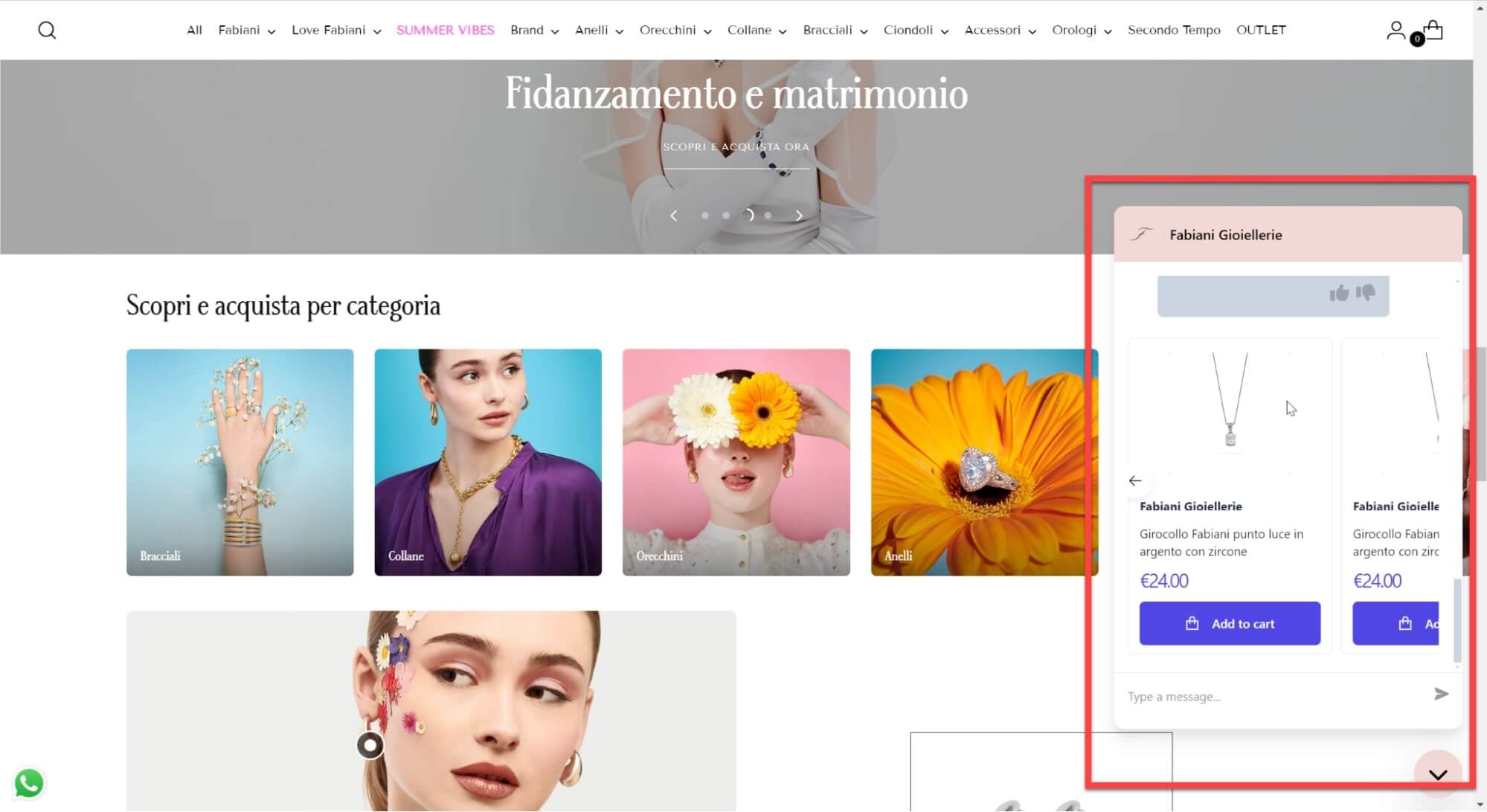
- E-commerce Assistance
In e-commerce, white label AI chatbots encourage great shopping experiences. With it, customers can find products, check availability, compare prices, and even assist with the checkout process. For instance, if a customer abandons their shopping cart, the chatbot can follow up with reminders or offer assistance. This not only improves customer satisfaction but also helps increase sales by reducing cart abandonment rates.
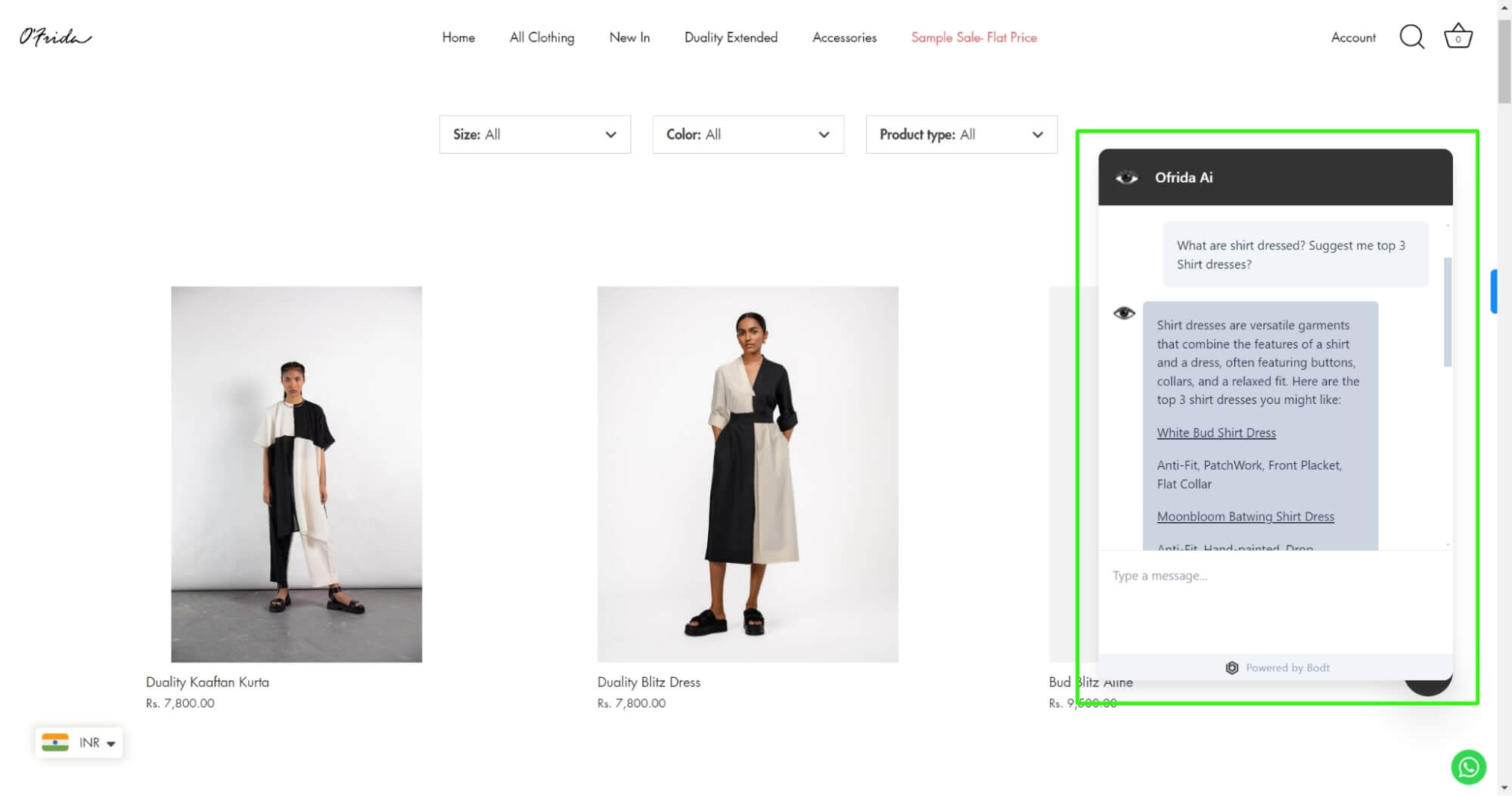
- Internal Business Processes
White Label AI chatbots aren’t just for customer-facing roles, they can also execute internal business processes. Let's just say they support HR tasks like leave balance checks and policy explanations, aid IT support with troubleshooting and software guidance, and manage administrative duties such as scheduling meetings and reminders.
Benefits of a White Label AI Chatbot
You may be wondering what benefits you could get from using a White Label AI Chatbot, some of them are:
- Cost Efficiency
The selling point for a White Label AI is how cheap it is. Creating a custom chatbot from scratch can be expensive and time-consuming. But with a white label solution, you're getting a ready-made product that you can customize to your needs. This means you save on development costs and can start using the chatbot much sooner. Also, maintenance and updates are usually handled by the provider, saving you even more money in the long run. - Time Savings in Development Building a chatbot can take months of development, testing, and fine-tuning. With a white label AI chatbot, you skip most of that process. The core functionalities are already built and tested, so you just need to focus on customization and integration.
- Focus on Core Business Activities
By using a white label AI chatbot, your team can focus on what they do best, which is running your core business activities. The chatbot takes care of routine inquiries and tasks, freeing up valuable time and resources for more important work. - Enhancing Customer Experience
A white label AI chatbot enhances customer experience with instant, round-the-clock support that handles multiple inquiries simultaneously. It offers personalized interactions by remembering preferences and making good recommendations, leading to greater satisfaction, loyalty, and repeat business.
Why Do You Need a White Label AI Chatbot Platform?
Artificial intelligence (AI) has changed how businesses work. The introduction of white label AI chatbots are also a big part of this change. They handle lots of customer questions at the same time and are always available. But, that's not all. You can learn more about its benefits below:
- Brand Consistency and Control A white label AI chatbot lets you maintain brand consistency across all customer interactions. You can customize the chatbot to reflect your brand's voice, colors, and style.
- Reduced Development Time and Costs
With a white label solution, most of the hard work is already done, so you get a pre-built platform that you can quickly adapt to your needs. It reduces both the time and cost associated with development. - Ability to Offer Advanced AI Capabilities Without In-House Development
When you buy a white label AI chatbot platform, it comes with AI features already built in. This means you can offer top-notch AI-driven interactions to your customers without needing to develop these capabilities from scratch. - Enhanced Customer Engagement and Satisfaction
Customer satisfaction is guaranteed with a white label AI Chatbot. It takes up the work of a salesperson or an assistant, just to keep customers coming back. And with 24/7 availability, your customers can get help anytime they need it, further enhancing their experience.
Competitive Advantage
Every business is struggling to stay in the market. In a world where customers expect fast and efficient service, having an AI chatbot can set you apart from your competitors in the following ways:
- Staying Ahead in the Market
The ecommerce market keeps evolving, so staying ahead is important. AI chatbots represent reliable technology that many businesses are still catching up to. By integrating a white label AI chatbot, you’re positioning your business as a forward-thinking leader in your industry. This can attract tech-savvy customers who appreciate innovation and are looking for the most modern ways to interact with businesses. - Offering Innovative Solutions to Customers
Customers are always looking for new and better ways to interact with businesses. A white label AI chatbot gives a fresh, innovative solution that can enhance their experience. With this, you can satisfy current customers and attract new ones who are looking for businesses that offer the latest in customer service technology. - Customizable Solutions for Diverse Industries
Another word for White label AI chatbots is flexibility. Whether you’re in retail, healthcare, finance, or any other field, you can use the chatbot to handle industry-specific tasks and inquiries.
Practical Examples of White Label AI Chatbots: Real-World Case Studies and Success Stories
White label AI chatbots have been successfully implemented across various industries. Here are some case studies and stories about its success:
- Hermes
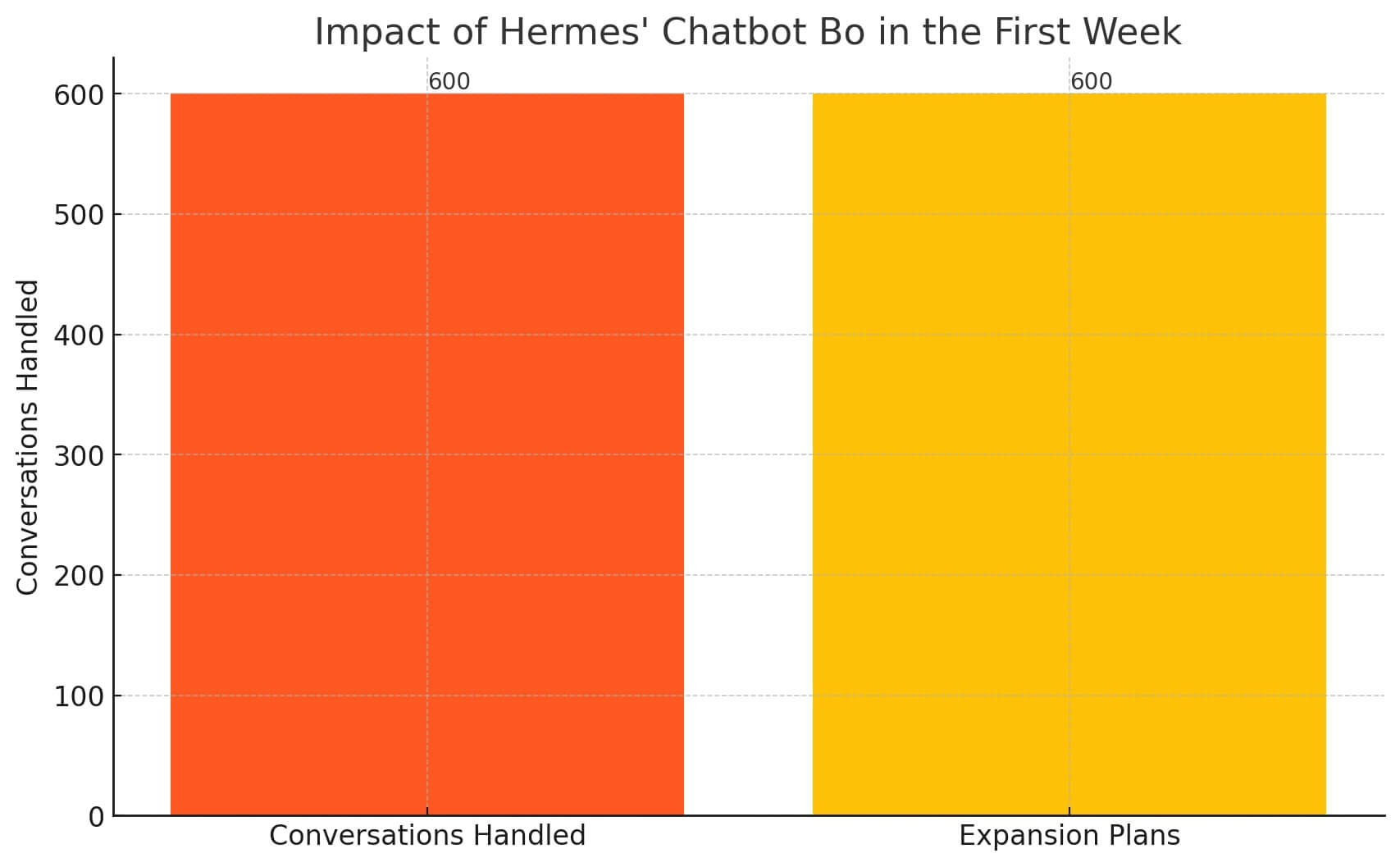
Hermes developed a chatbot named Bo to handle tracking inquiries and other common customer questions. In the first week, Bo handled more than 600 conversations on WhatsApp. Due to positive feedback, Hermes plans to expand Bo’s capabilities.
- Varma
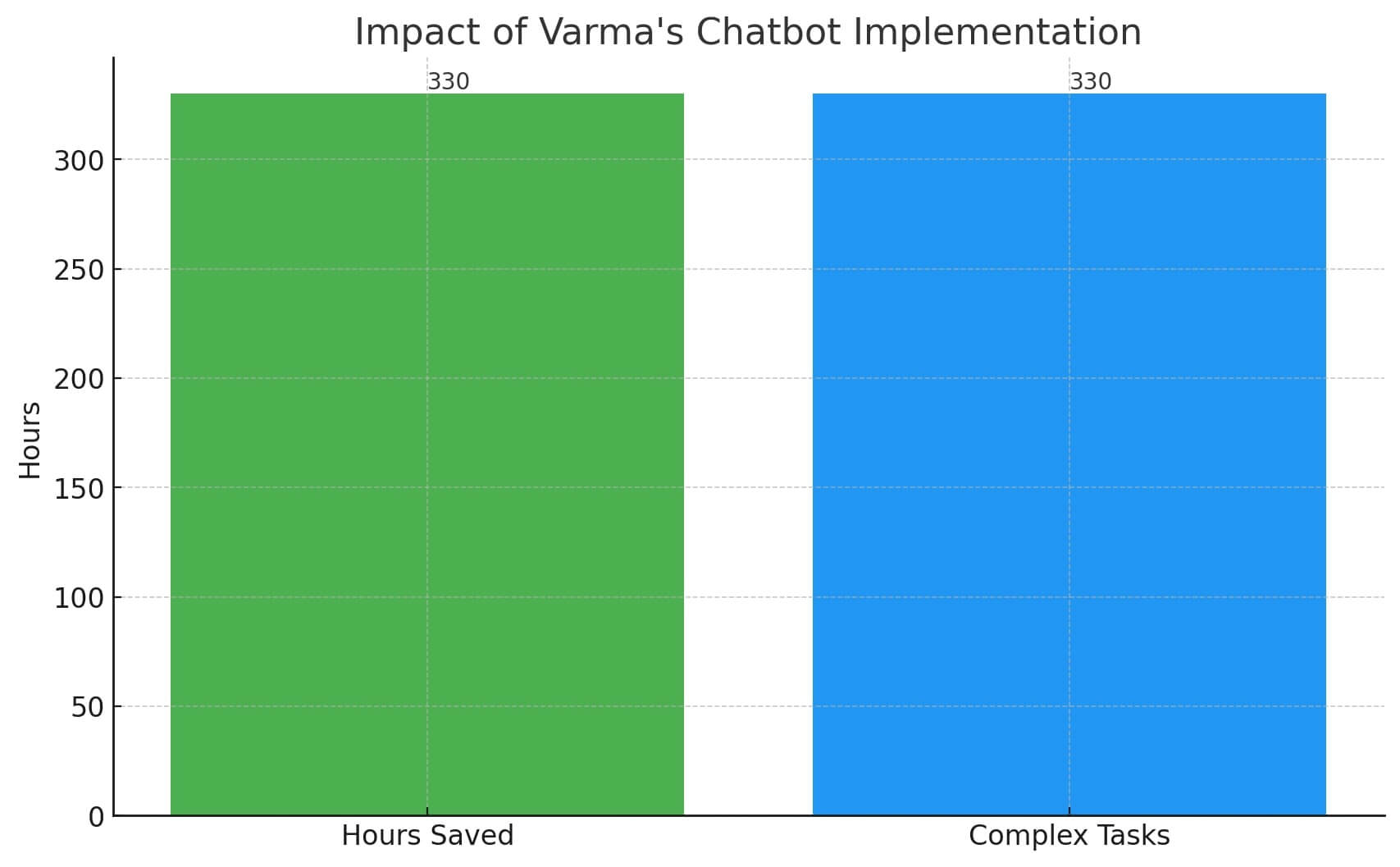
Varma, a pension insurance provider, implemented a chatbot to handle customer service queries. This saved them 330 hours per month, allowing employees to focus on more complex tasks.
- Sephora
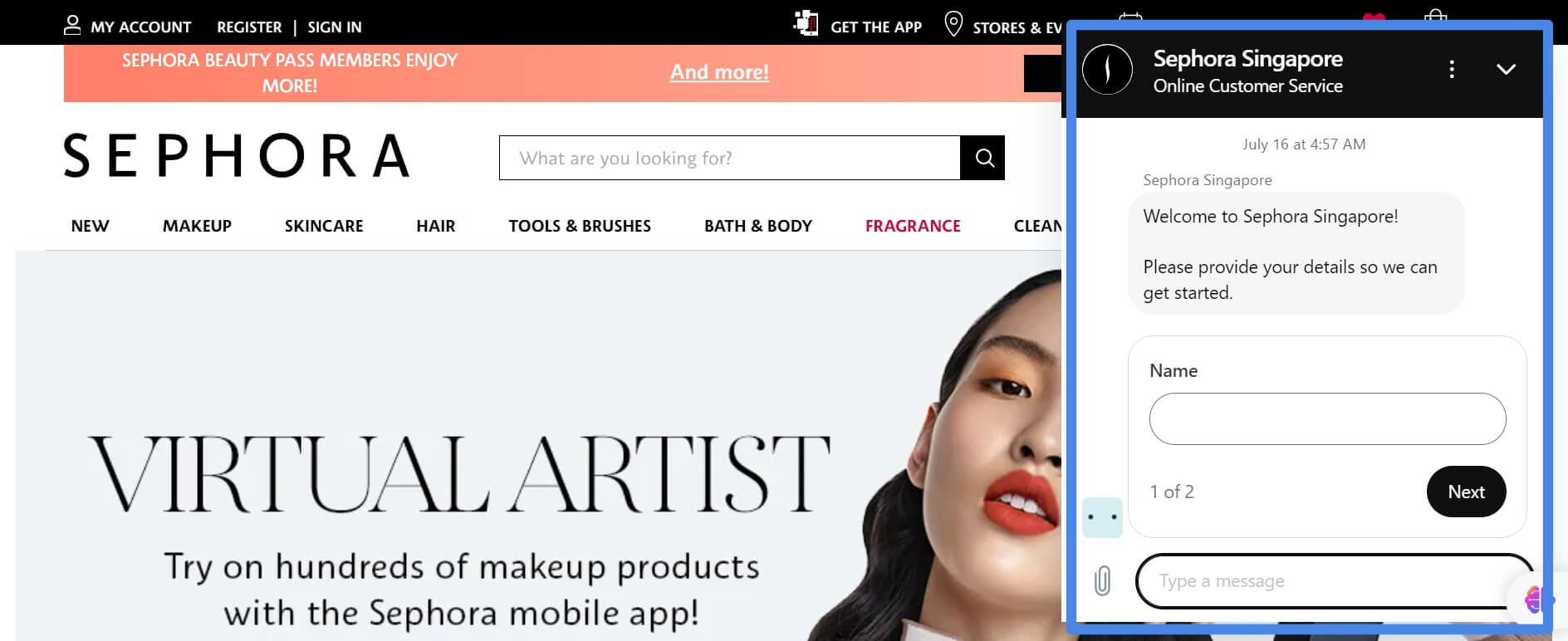
Sephora's chatbot provides personalized consultations and supports customer service on WhatsApp. It generates $30,000 in revenue monthly and has over 250,000 sessions across Singapore and Malaysia.
White Label AI Chatbot Features
White label AI chatbots have extensive features that can enhance your business operations. They include:
Customization and Branding
White label AI chatbots can be customized to match your brand's unique style. This includes designing how it looks and feels for users. You can make the chatbot's interactions fit your business needs by creating specific answers and guiding users based on their questions. Also, you get to add your brand’s logo, colors, and other visuals to the chatbot. This makes it feel like a natural part of your brand, which helps customers recognize and trust it more.
Integration Capabilities
Integration capabilities are like having a superpower for your white label AI chatbot. Let's just say it's about how well it can team up with the tools you already use. For instance, with CRM and ERP systems, the chatbot becomes a whiz at accessing customer info and updating records, which means it can offer more personalized help based on what it knows about each customer. When it hooks into social media platforms, it's like having a friendly helper on Facebook or Twitter who can answer questions and handle issues right away. For e-commerce, integrating with platforms like Shopify or Magento means the chatbot can assist shoppers with finding products, processing orders, and sorting out shipping details, all without missing a beat. These integrations make life easier for you and your customers by making interactions smoother and more effective across different platforms.
Advanced AI Capabilities
Another feature is Advanced AI capabilities. This refers to its ability to do more than just respond. It can understand and learn from interactions to provide better service. Here's how it works:
- Natural Language Processing (NLP)
This lets the chatbot understand and respond to human language in a way that feels natural. - Machine Learning (ML) for Improving Responses
The chatbot gets smarter over time thanks to machine learning. It learns from past interactions to improve its responses, getting better at understanding what customers need and how to help them. - Sentiment Analysis
This feature helps the chatbot understand the emotions behind a customer's messages. It can detect if someone is frustrated, happy, or confused, allowing it to respond appropriately and empathetically. - Multi-language Support
The chatbot supports multiple languages, helping it connect with customers worldwide and break language barriers to expand your reach.
User Management and Analytics
User Management and Analytics features in a white label AI chatbot are all about understanding your customers better and improving how the chatbot works. Here’s how they help:
- User Data Tracking
This feature keeps tabs on how customers interact with the chatbot. It tracks things like which questions are asked most often, where customers drop off in conversations, and what types of issues come up frequently. This data helps you understand customer behavior and make informed decisions to improve the chatbot’s performance. - Performance Analytics and Reporting
These tools analyze the data collected to show you how well the chatbot is doing. You can see metrics like response times, customer satisfaction ratings, and the number of issues resolved. This lets you measure the chatbot’s impact on your business and identify areas for improvement. - Real-time Insights and Dashboards
Real-time insights show trends as they happen, so you can quickly adjust strategies or respond to emerging customer needs.
Security and Compliance
The Security and Compliance feature in a white label AI chatbot ensures that your customer data is safe and that your business follows important regulations. Here’s how they work:
- Data Encryption
This feature scrambles customer data so that it’s unreadable to anyone who doesn’t have permission to see it. It protects sensitive information like names, addresses, and payment details from being accessed by unauthorized people. - GDPR Compliance
GDPR (General Data Protection Regulation) is a set of rules designed to protect the privacy of individuals in the European Union. A chatbot with GDPR compliance means it handles customer data according to these strict regulations, ensuring transparency, consent, and the right to access or delete personal information. - Secure Data Storage
The chatbot stores customer data in secure locations, using robust methods to prevent unauthorized access or data breaches. With this, sensitive information will remain confidential.
Top 7 White Label AI Chatbot Platforms in 2024
White label AI chatbot platforms have become important tools for businesses looking to enhance customer service and engagement. You can take a look at the top 7 platforms in 2024, including their features, pricing, pros and cons, ideal use cases, and a comparison to help you choose the best one for your business.
Criteria for Selection
Choosing the right white label AI chatbot platform in 2024 involves considering some factors to ensure it meets your business needs. They are:
- Market Reputation
Platforms with a strong reputation are often reliable and have a track record of delivering quality service and support to businesses. - Feature Set
Evaluate the platform's features such as natural language processing (NLP), machine learning capabilities, analytics tools, and multi-language support to determine if they align with what you need. - Customer Reviews
Reading reviews from other businesses can provide insights into the platform’s performance, reliability, and user satisfaction. - Pricing
You should also consider the platform's pricing structure, including any upfront costs, subscription fees, or additional charges for customizations to ensure it fits your budget. - Support and Documentation
Good customer support and comprehensive documentation are very important. So, you'll have to look for platforms that offer responsive support channels and clear guides to help you set up and maintain your chatbot.
Detailed Reviews of Top Platforms
1. Bodt.ai
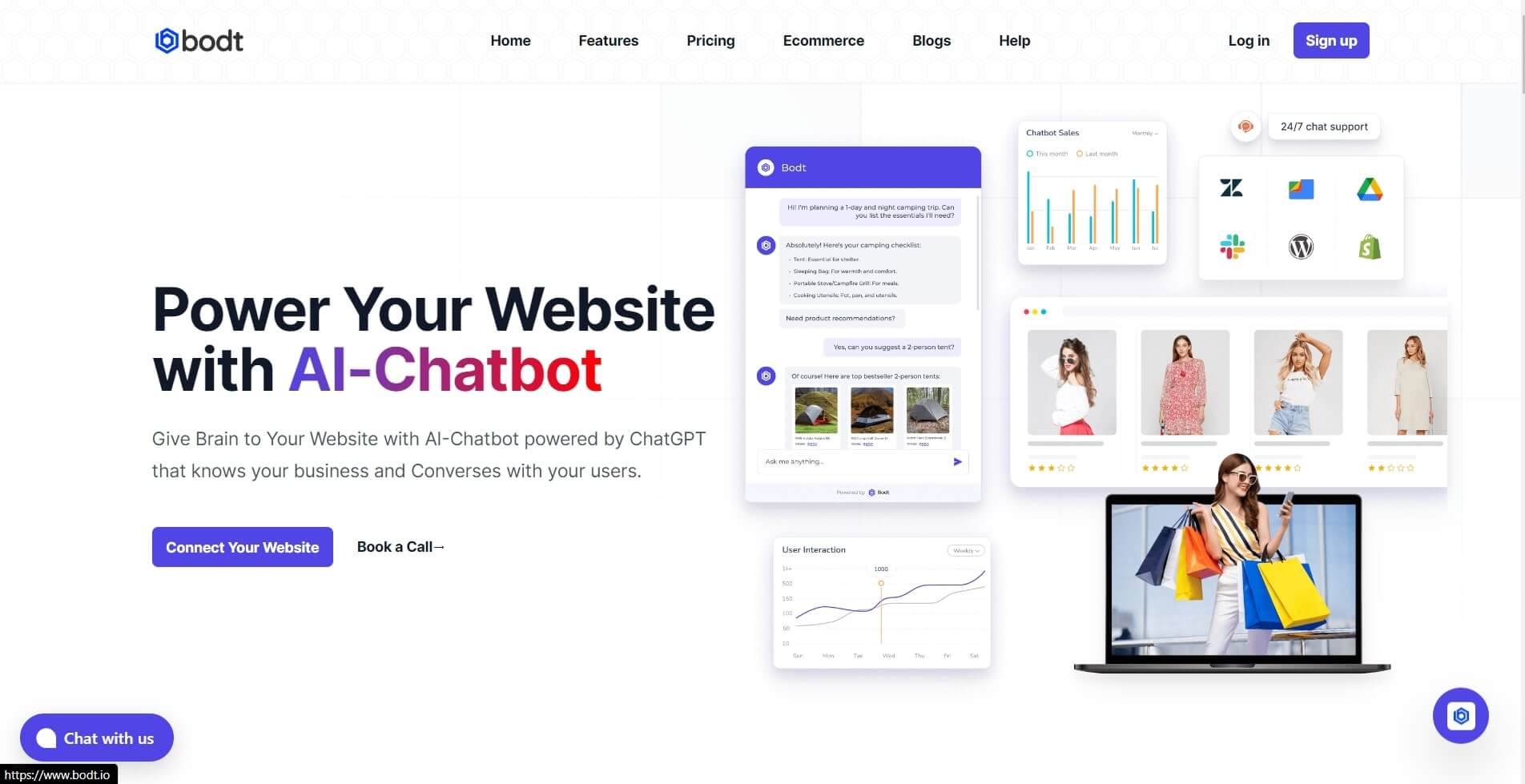
Source Bodt is a leading customer service software that uses AI to communicate with customers. It features a simple chatbot builder that allows you to create AI chatbots in just three steps. Bodt also offers excellent 24/7 customer support to keep your customers satisfied.
Key Features
- Supports multiple languages
- Integrates with apps like WordPress and Shopify
- Analytics dashboard to monitor chatbot performance
- Allows unlimited chatbot creation
- No technical or programming skills required to set up chatbots
Pricing
- Subscriptions start at just $1 per month.
Pros
- Uses AI, NLP, and ML.
- Easy to use and affordable.
- No technical knowledge is needed.
Cons
- It’s still relatively new.
Ideal Use Cases
- Ecommerce stores needing highly customized solutions and advanced data integration can always opt for it.
2. BotsCrew
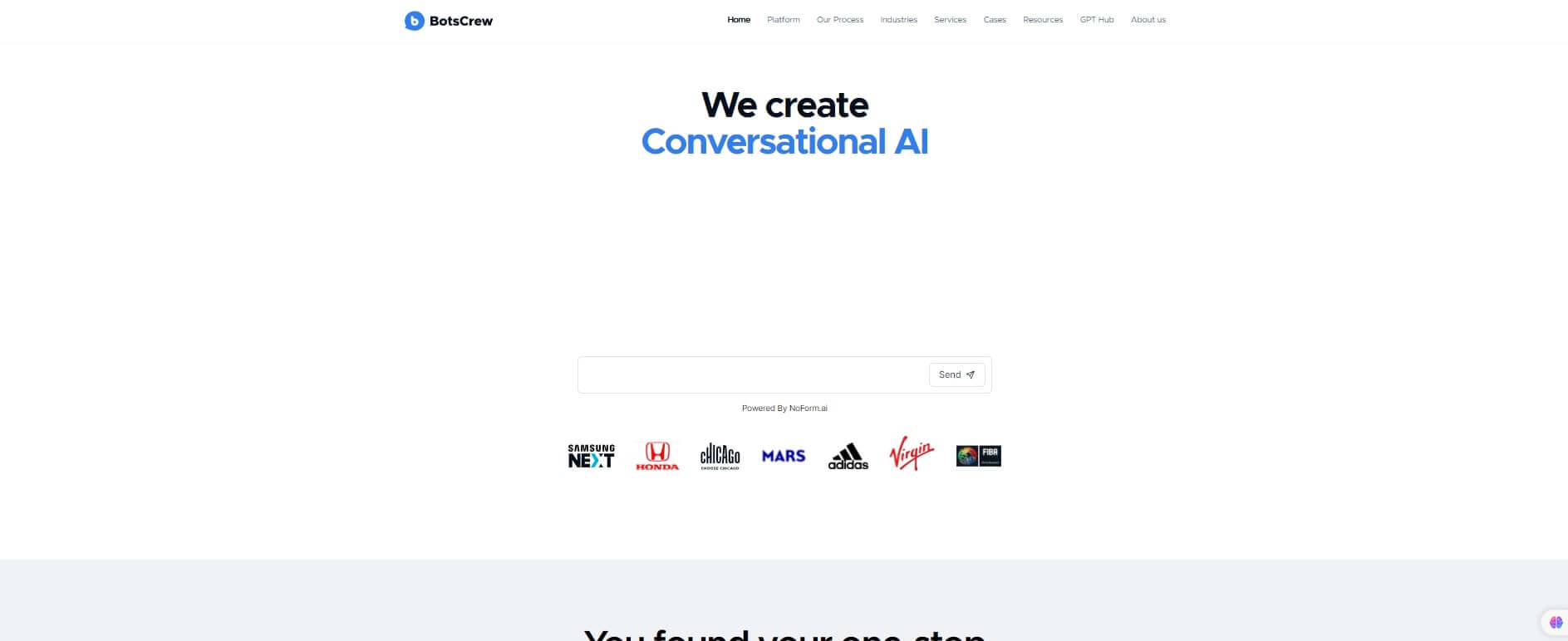
BotsCrew is a chatbot development platform offering comprehensive chatbot creation services, including end-to-end development, multi-channel integration, and AI-powered conversational capabilities.
Key Features
- Omnichannel capabilities
- AI and machine learning
- 24/7 customer support.
Pricing
- Free Plan
- Pro ($25)
- Unlimited ($95)
Pros
- High-quality support
- Extensive customization options
- Strong AI capabilities.
Cons
- Higher cost
- complex initial setup.
Ideal Use Cases
- Businesses needing high-quality support and extensive customization.
3. BotPenguin
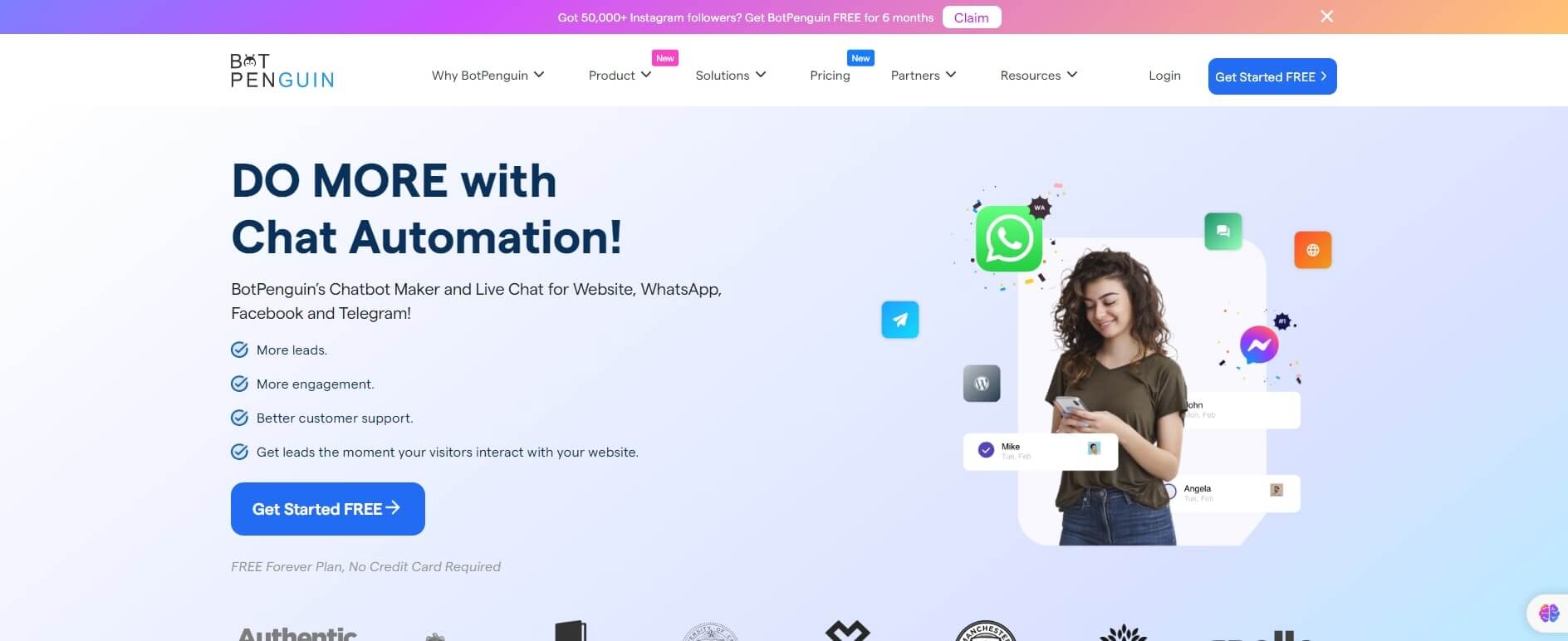
BotPenguin is a top white label chatbot platform. You get a fully customizable platform to set up taxes, sell add-ons, offer free trials, and create various subscription plans to meet your client's needs.
Key Features
- Draw in customers with a free trial period.
- Handle integrations with platforms like Zoho, ChatGPT, Google Suite, and more
- Support multiple currencies for a localized experience.
Pricing
- Baby Plan ($0)
- Little Plan ($15)
- King Plan ($50)
- Emperor Plan(Custom)
Pros
- Easy to use
- Affordable
- Good integration options.
Cons
- Limited advanced features,
- Occasional glitches.
Ideal Use Cases
- Small businesses and startups looking for an affordable, easy-to-use chatbot solution
4. Custom GPT
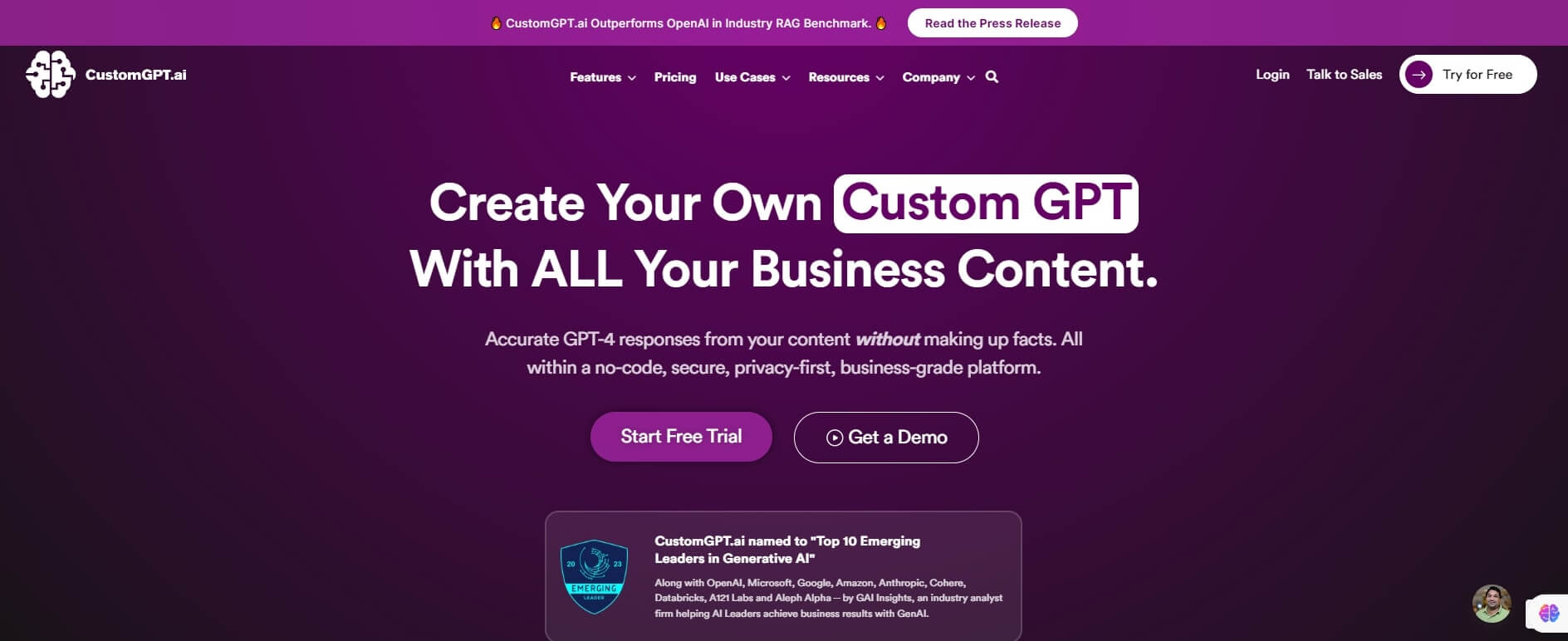
Custom GPT is a platform that provides tools to build custom AI chatbots powered by OpenAI's GPT models. It's not just for regular conversations. You can train it on your data and topics. This makes it better at understanding and responding to things specific to your business or needs.
Key Features
- Customizable conversation flows
- Advanced natural language processing
- Integration with various platforms.
Pricing
- Standard ($89)
- Premium ($449)
Pros
- Highly customizable
- Powerful NLP capabilities.
Cons
- Expensive
- complex to implement.
Ideal Use Cases
- Businesses requiring sophisticated conversational AI tailored to specific needs.
5. Intelliticks
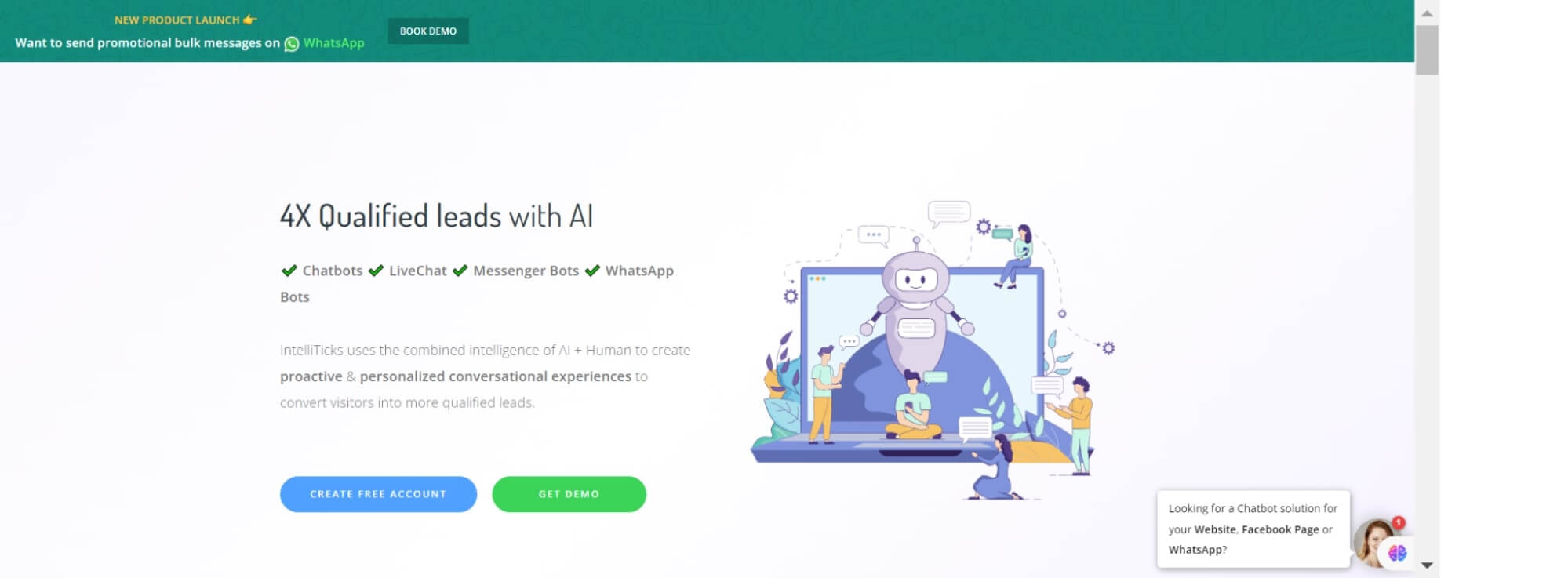
Intelliticks is ideal for white label chatbot resellers like digital marketing agencies, IT service companies, and large businesses. This program provides a fully customized chat platform featuring the partner's branding. Resellers can choose from three plans (bronze, silver, and gold) to get the level of customization they need, including web apps, integration apps, and mobile apps for Android and iOS.
Key Features
- Real-time lead generation
- Automated responses
- Integration with CRM systems.
Pricing
- Starter ($20)
- Standard ($80)
- Plus ($240)
Pros
- Offer 24/7 customer service.
- Automatically qualify and direct leads to the right team members.
- Get detailed analytics to improve performance.
Cons
- Limited customization options
- Higher cost for advanced features.
Ideal Use Cases
- Sales and marketing teams focusing on lead generation and customer engagement.
6. Engati
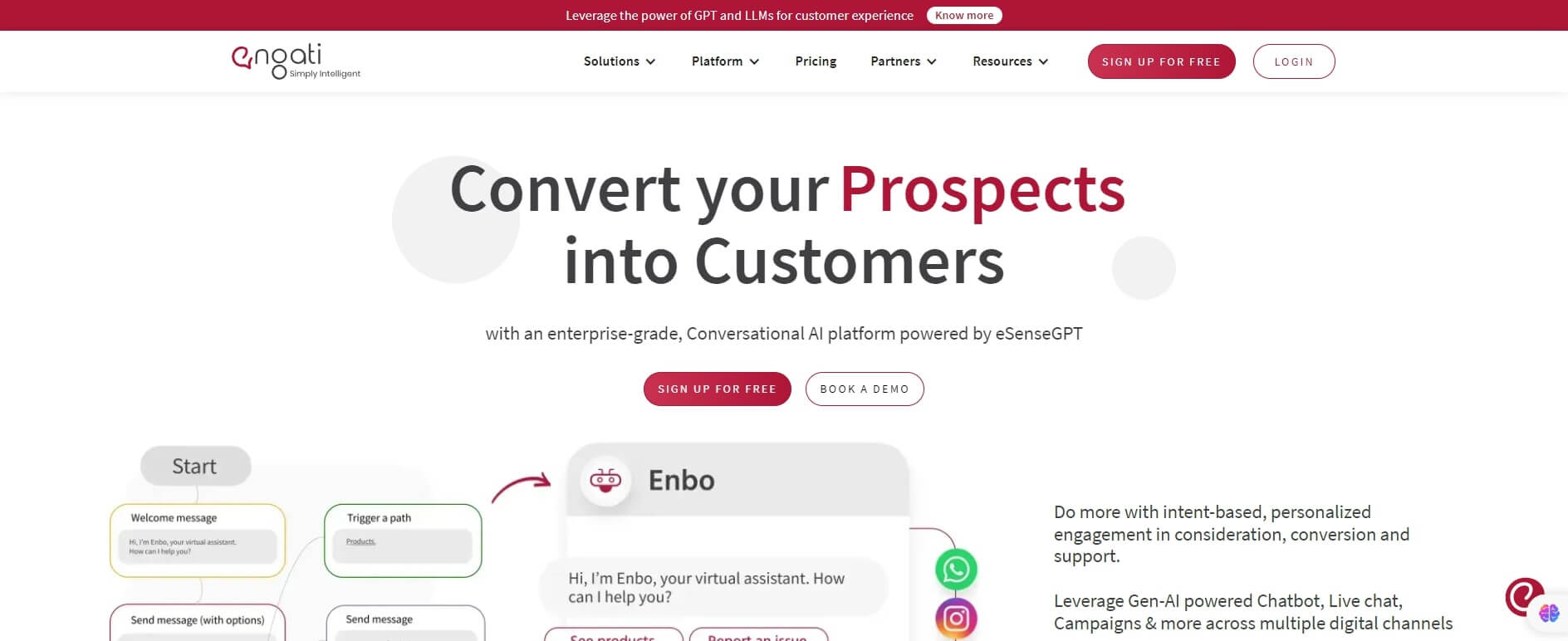
Engati is a great tool for building and managing your custom chatbot easily. This flexible platform supports major messaging services like Messenger, Telegram, Skype, Slack, etc. all aimed at enhancing customer engagement.
Key Features
- Set up flexible pricing options for clients.
- Receive customized training and support services.
Pricing
- Free plan available
- Paid plans start at $21 per month.
Pros
- Wide range of features
- Easy to set up
- Affordable.
Cons
- Limited customization in lower-tier plans
- Occasional performance issues.
- Ideal Use Cases
- Small to medium-sized businesses looking for a versatile and affordable chatbot solution.
7. Wotnot
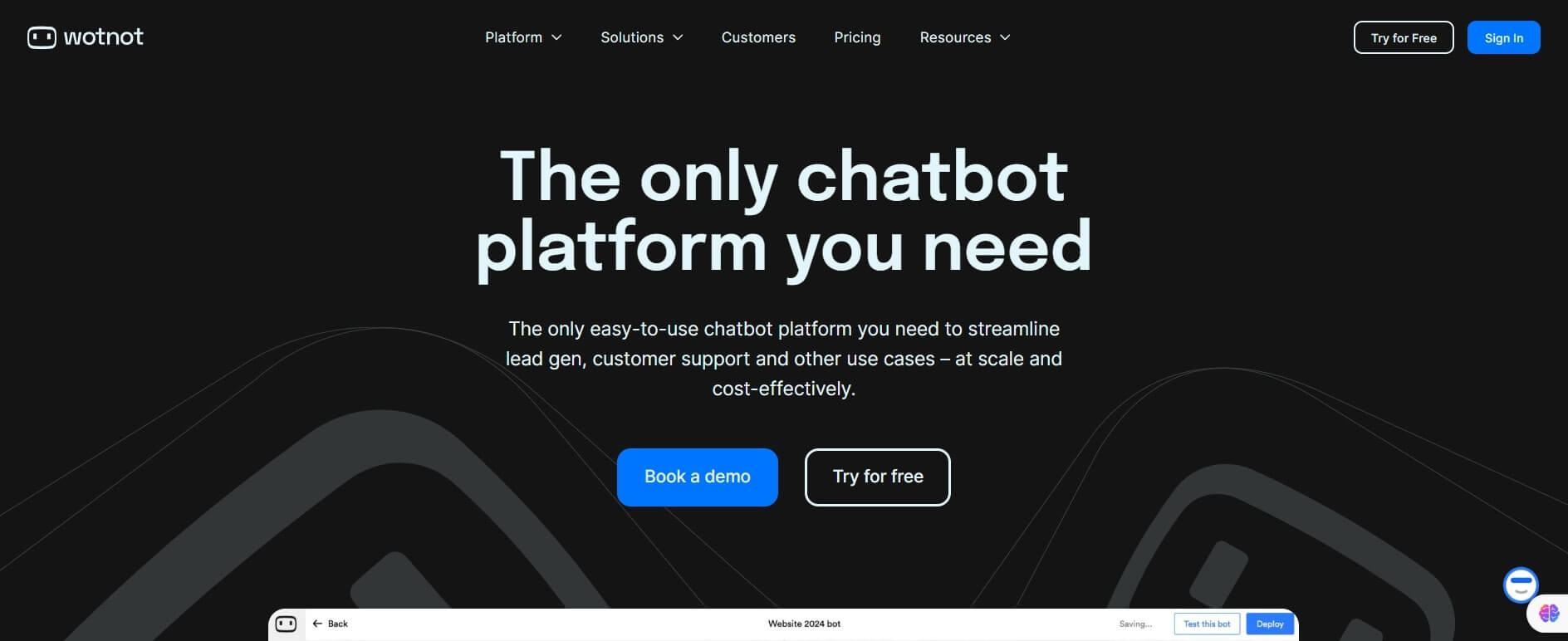
Wotnot is a no-code chatbot platform that allows businesses to create AI chatbots with customization options such as branding, conversation flows, and UI/UX design. It supports various integrations and offers features like data training capabilities and seamless updates.
Key Features
- Easy branding (logo, domain, colors)
- Unlimited accounts creation
- AI chatbot with data training capabilities.
Pricing
- Free Plan
- Starter ($99)
- Premium ($299)
- Ultimate ($899)
Pros
- Comprehensive feature set
- User-friendly
- Supports revenue growth.
Cons
- Custom pricing can be a drawback for small businesses.
Ideal Use Cases
- Suitable for businesses aiming for extensive brand customization and scalability in their chatbot solutions.
A Comparison Table of the Top 7 White Label AI Chatbot Platforms
| Platform | Bodt.ai | Botscrew | Botpenguin | Custom GPT | Intelliticks | Engati | Wotnot |
|---|---|---|---|---|---|---|---|
| Key Features | AI, NLP, ML | Omnichannel capabilities | Customizable branding | Advanced NLP capabilities | Real-time lead generation | Supports major messaging services | No-code platform |
| Easy chatbot builder | 24/7 customer support | Support for multiple currencies | Customizable conversation flows | Automated lead qualification | Flexible pricing options | Easy Branding | |
| Pricing | Starts at $1 per month | Starts at $25 per month | Starts at $15 per month | Starts at $89 per month | Starts at $20 per month | Starts at $21 per month | Starts at $99 per month |
| Pros | No technical skills required | Strong AI capabilities | Good integration options | Highly customizable | Real-time lead generation | Easy setup | supports revenue growth |
| Affordable | High-quality support | Quite affordable | Powerful NLP | 24/7 support | Affordable | User-friendly | |
| Cons | Still relatively new | Higher cost, complex setup | Limited advanced features | Expensive | Limited customization options | Limited customization in lower-tier plans | Custom pricing can be a drawback |
What are the Integrations Available with Bodt White Label AI Chatbot Platform?
The Bodt White Label AI Chatbot Platform offers a wide range of integrations to seamlessly connect with various tools and platforms, enhancing its functionality and usability for businesses. Here are the key integrations available:
- Overview: Integrate your chatbot with WhatsApp to facilitate real-time communication with customers.
- Benefits: Instant messaging, high engagement rates, and direct customer interaction.
- Use Cases: Customer support, order updates, promotional messages.
- Overview: Connect your chatbot with Instagram to engage users directly through the platform.
- Benefits: Enhanced social media presence, automated responses to comments and direct messages.
- Use Cases: Handling inquiries, managing promotions, responding to comments and DMs.
Facebook Messenger
- Overview: Integrate with Facebook Messenger to interact with your audience on one of the most popular messaging platforms.
- Benefits: Wide reach, personalized customer interactions, automated messaging.
- Use Cases: Customer service, marketing campaigns, product recommendations.
Shopify
- Overview: Seamlessly integrate with Shopify to provide automated assistance on your e-commerce store.
- Benefits: Improved customer shopping experience, automated order tracking, and product suggestions.
- Use Cases: Handling customer queries, order status updates, and personalized product recommendations.
WordPress
- Overview: Integrate your chatbot with WordPress to provide instant support on your website.
- Benefits: Enhanced website engagement, 24/7 customer support, and lead generation.
- Use Cases: Answering FAQs, guiding users through the website, and collecting customer feedback.
Slack
- Overview: Connect your chatbot with Slack for internal team communications and support.
- Benefits: Streamlined internal communication, automated task management, quick information retrieval.
- Use Cases: Team collaboration, IT support, HR inquiries.
HubSpot
- Overview: Integrate with HubSpot to manage customer relationships and marketing automation.
- Benefits: Improved CRM capabilities, automated lead nurturing, and personalized customer interactions.
- Use Cases: Lead generation, customer follow-ups, marketing automation.
Zendesk
- Overview: Integrate with Zendesk to enhance your customer support operations.
- Benefits: Efficient ticket management, automated customer service, improved response times.
- Use Cases: Handling customer support tickets, providing instant answers, and escalating complex issues.
Notion
- Overview: Connect your chatbot with Notion for streamlined knowledge management and collaboration.
- Benefits: Easy access to company resources, automated knowledge base retrieval, enhanced team productivity.
- Use Cases: Accessing company documents, answering employee queries, managing projects and tasks.
Conclusion
Integrating the Bodt White Label AI Chatbot Platform with these diverse tools and platforms enables businesses to enhance their customer engagement, streamline operations, and provide superior support. By leveraging these integrations, businesses can achieve a more cohesive and efficient workflow, ultimately driving growth and success.
